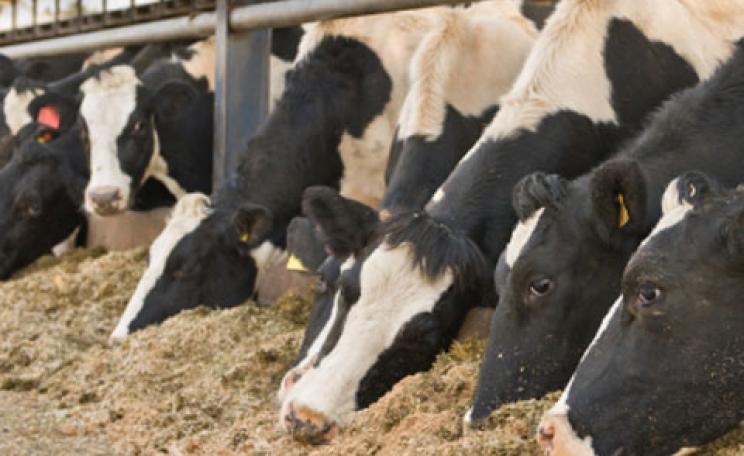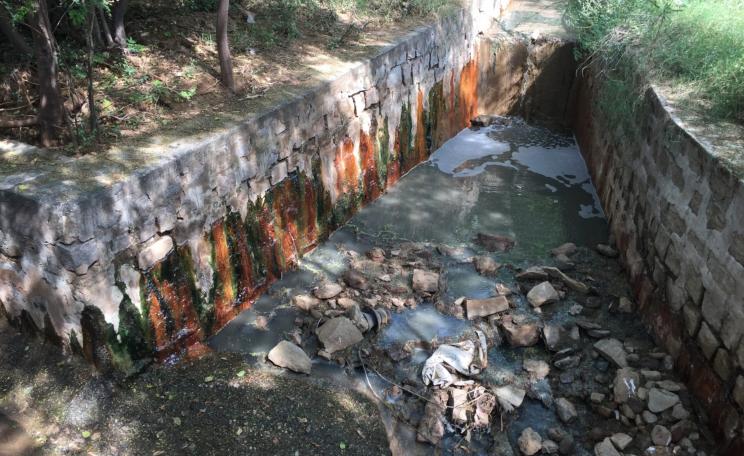A leading high street bank has come under fire for part-financing the controversial Nocton 'super dairy' project which will – if approved – see the creation of the UK's largest ever dairy farm, housing at least 4,000 cows.
Clydesdale Bank has been criticised by opponents of the proposed dairy facility after it emerged it has provided the company behind the venture, Nocton Holdings Ltd, with a mortgage and debenture package. Compassion In World Farming (CIWF) says the bank has refused to disclose what environmental assessments were carried out before granting the finance.
The move comes ahead of this week's expected re-submission of a planning application for the £50-million scheme which was withdrawn earlier this year after the local authority responsible, North Kesteven District Council, and the Environment Agency, raised concerns about the developments’ environmental impact.
Documents seen by The Ecologist reveal that Clydesdale Bank, trading under the name of the Yorkshire Bank – both franchises are part of the giant National Australia Bank group – provided a finance package in December 2009 to help Nocton Holdings Ltd acquire land for the development near the village of Nocton in Lincolnshire.
The purchase involved approximately 2,512 acres of land around the site of the proposed dairy, including parts of the Nocton estate and other nearby plots, according to documents submitted at Companies House.
Although the exact value and details of the mortgage and debenture provided by Clydesdale Bank have not been disclosed, The Ecologist has learnt that Nocton Holdings Ltd paid more than £13-million for land in the Nocton area at the end of 2009. The land was bought from a company called PAC Farms Ltd, which specialises in the cultivation of cut flowers and bulbs, land registry titles indicate.
The proposed ‘super dairy’ has been criticised by animal welfare groups and local people since being announced. Concerns have been raised over conditions for the thousands of cows that would be housed at the plant, and over the farms’ wider ecological footprint, including the potential risk to ground water supplies and how the facility will dispose of the thousands of tonnes of slurry expected to be produced every year.
CIWF says that Clydesdale Bank has refused to answer questions about what environmental and social impact assessments were carried out prior to the finance being approved.
The National Australia Bank group states that its lending policy includes ‘integrated environmental risk assessment to ensure indirect environmental impacts are considered and managed appropriately.’ The group has also adopted the Equator Principals, an international benchmark which helps banks manage risk where projects have environmental and social impacts.
‘In our view if a bank has a lending policy that includes strict environmental criteria these should be applied in every case,’ said CIWF campaign manager Pat Thomas. 'This is especially important these days when we face so many converging environmental crises – many of which can be traced back to farming practices. What is not clear to us is whether the bank's own guidelines were applied in this case. We have put this to the Clydesdale Bank but as yet have not received answers to our specific questions.’
A spokesperson for Clydesdale & Yorkshire Banks told The Ecologist: 'The details of any relationship we may have [with Nocton Dairies Ltd] is confidential and it would be wholly inappropriate for us to comment on them. With any lending we make, the checks we undertake are specific and appropriate for the individual circumstances.'
Those behind the Nocton dairy have stated the overall cost of the planned farm, but exactly how the project is to be funded has remained unclear. In September it was revealed how Nocton Dairies Ltd had submitted an expression of interest application to the East Midlands Development Agency (EMDA) for public money administered under the Rural Development Programme for England, in turn funded by the European Union and DEFRA.
Nocton's advocates maintain the dairy is designed to a level 'beyond the highest environmental and animal welfare standards ever seen in the UK'. Writing for The Ecologist David Alvis, an agribusiness consultant, this month defended the Nocton proposal, saying that 'Nocton Dairies offers a genuinely sustainable model for future food production. Integrating the dairy with its exclusively crop growing neighbours combines the fundamental sustainability of a traditional mixed farming system, with production efficiencies and levels of investment in welfare and environmental management that can only be achieved on this scale.'
'Together this partnership has the potential to provide levels of economic resilience, security of supply and environmental sustainability, not only for the dairy itself, but also for potentially 20,000+ acres of nearby farmland, needed to address the real challenges facing those responsible for providing the nation’s food in the years ahead.'
Andrew Wasley is editor of The Ecologist
| READ MORE... | |
 |
NEWS ANALYSIS What is the environmental footprint of super-sized dairy farming? Plans for US-style mega dairy farms in the UK are being heralded for their potential for reducing greenhouse gas emissions, but scaling up may create as many problems as it attempts to solve |
 |
NEWS 'Super-dairy' may only meet 'minimum' welfare standards Advocates of Britain's biggest dairy farm, at Nocton, have sold the concept on the basis of its outstanding animal welfare and environmental credentials. But new evidence suggests this may not be possible without public funding |
 |
INVESTIGATION Undercover investigation:The shocking cost of US 'mega-dairies' With planning permission for Britain's biggest dairy at Nocton about to be re-submitted, The Ecologist travels to California to examine intensive milk production - and finds factory farms, conflict, intimidation, pesticides, pollution and small-scale farmers driven out of business... |
 |
NEWS ANALYSIS UK farmers face dilemma over 'super-dairy' plans Plans for an 8,100-cow dairy farm at Nocton in Lincolnshire will ‘polarise’ farming in the UK and destroy smaller rural-based family farms say those working in the sector |








